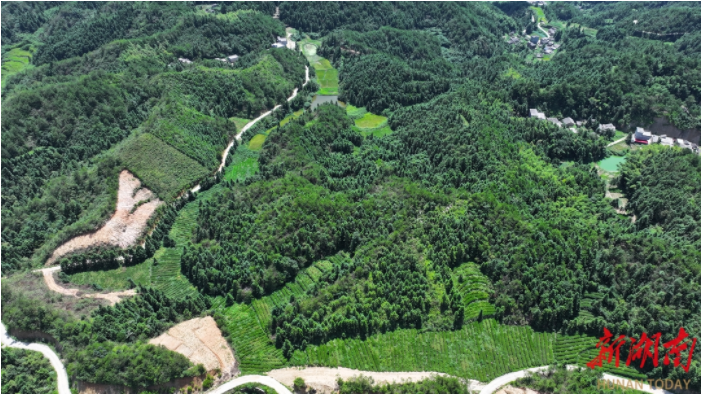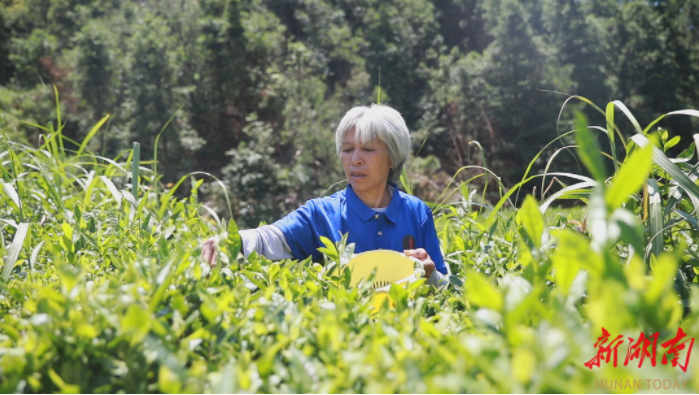Farmers busy harvesting autumn tea
2024-08-30
Farmers were busy picking tea leaves with bamboo baskets on their backs in the 100-mu (about 6.67 hectares) tea garden in Libai Village, Liantang Town, Guiyang County on the morning of August 27. “Our tea tastes sweet, so it’s very popular. Last year, I planted about 5 mu (about 0.33 hectares) of tea trees, with the income of over ten thousand yuan.

Since the beginning of autumn, more than 500 mu (about 33.33 hectares) of Yaowanggong ecological tea in Libai Village has entered the harvesting period. Libai Village is located among the mountains in Liantang Town.
Among them, Fucang Mountain, with an altitude of 1,249 meters, has a large temperature difference between day and night, and is shrouded in clouds and mist all year round. with sandy soil and high vegetation coverage, the tea here has a green color, a fragrant aroma, a mellow taste, and a long aftertaste.
But before 2010, Libai Village did not have a pillar industry, and tea was mainly cultivated by individuals and families. In 2010, Li Juan, a native of Liantang Town with rich experience in tea tree planting and tea processing skills, came to the village and led villagers to build tea gardens for industrialized planting.
“With good climate and sandy soil, the tea here has good quality. However, due to lack of a systematic management and promotion, few people knew about it. So I wanted to build Yaowanggong Tea brand in the hope of promoting the good tea,” said Li Juan.
She established a company and has created a one-stop industrial chain of tea cultivation, tea production, and tea making. Over 5,000 kilograms of high-quality black and green tea can be processed annually.

“Our tea is sold offline and online. It’s sold to Taiwan, Beijing and other places. We have also launched different grades and prices of tea for different customers. Next year, the village plans to expand the planting area and strives to achieve a production value of over 5 million yuan,” said Li Juan.
After more than ten years of development, the tea planting area in Libai Village and surrounding villages has reached over 500 mu (about 33.33 hectares), with an annual output of over 20,000 kilograms of tea and a production value of over 4 million yuan. The four types of tea produced by Yaowanggong Tea Factory have gained great popularity and become the pillar industry of the village.
“Relying on the Fucang Mountain, we will promote the integrated development of tea with tourism and wellness as well as a tea brand system featured by high mountain ecological health. And we will continue to provide policy, technology, and publicity support for enterprises and farmers to expand the scale of the tea industry,” said Li Kangjian, deputy mayor of Liantang Town.
Chinese source: hunantoday




